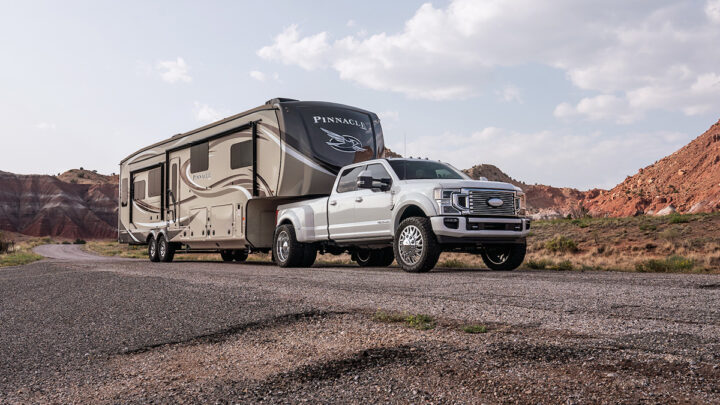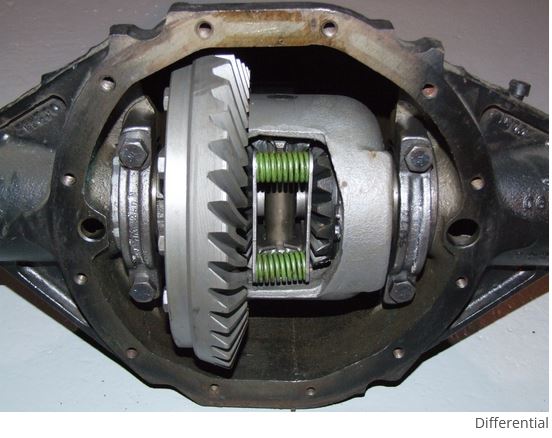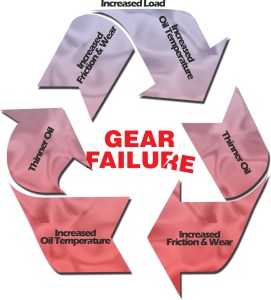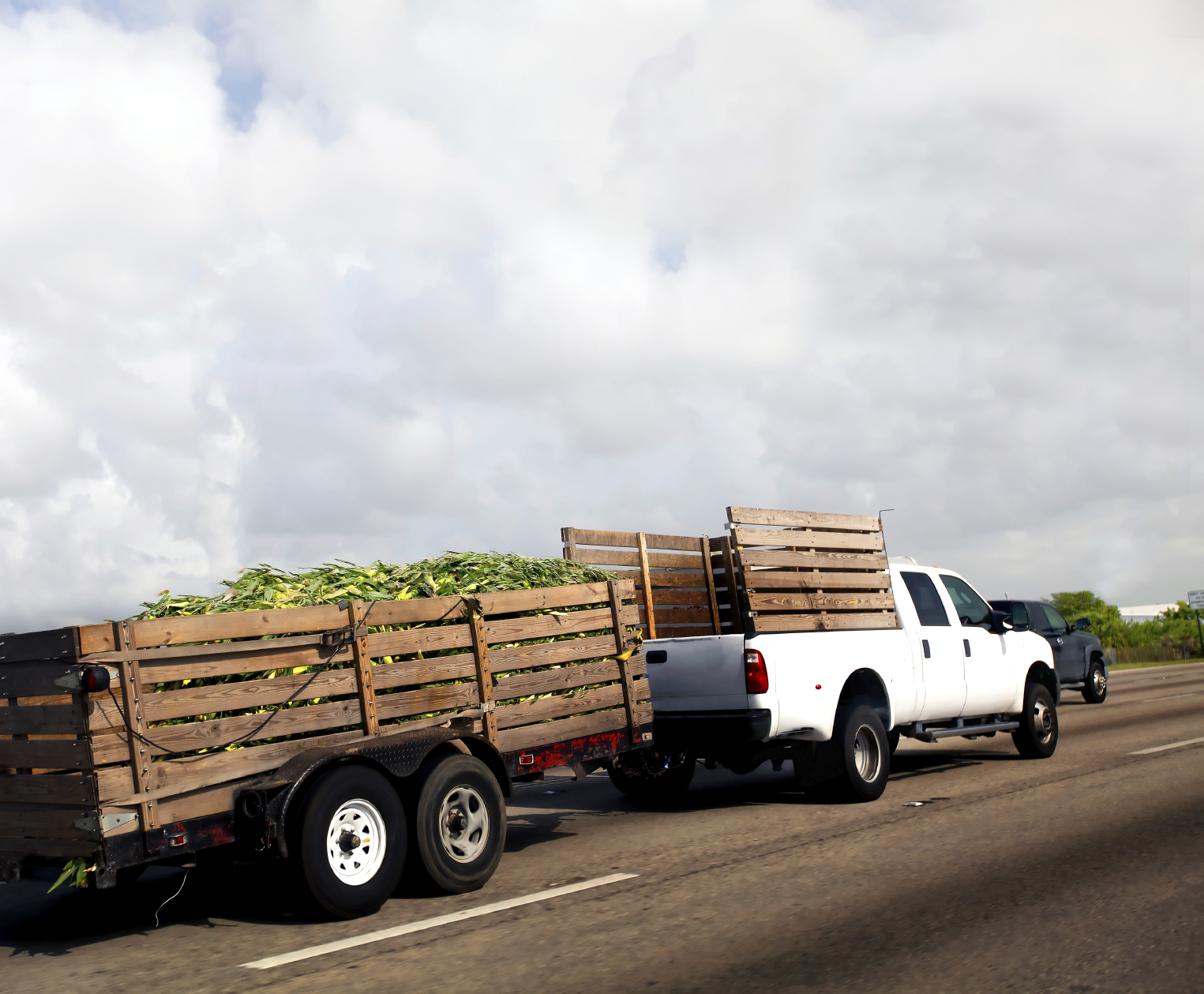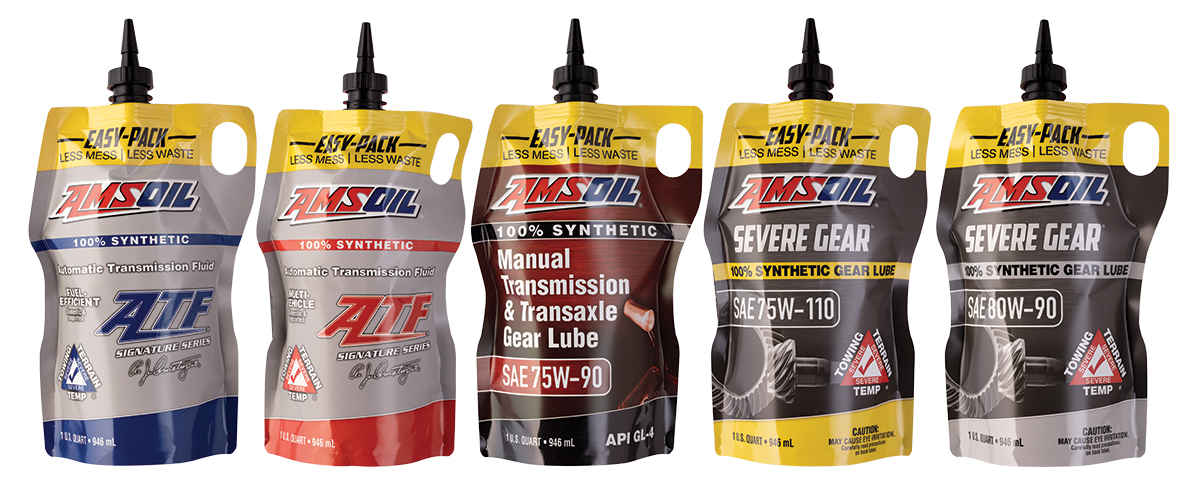How Often Should I Change Differential Fluid?
Fluid change intervals depend on your vehicle, driving conditions and gear oil quality.
Save time and cash first by improving the situation with this differential fluid solution!

A differential is a set of gears that allows a vehicle’s driven wheels to revolve at different speeds when going around corners or over rough terrain. Those gears require lubrication, which is commonly called differential fluid, gear oil, or gear lube.
How often you should change differential fluid depends on your vehicle, driving conditions and fluid quality. If you drive primarily on the highway in temperate conditions and rarely tow or haul, you won’t need to change the differential fluid very often.
However, severe operating conditions break down differential fluid more quickly and place greater stress on the gears and bearings, inviting wear that reduces their lifespan.
Greater load capacity, less lubrication.
Truck manufacturer’s ongoing arms race for the highest towing capacity has resulted in trucks that place more stress on differentials than their predecessors. Meanwhile, differential fluid capacities have largely decreased or remained the same.
For example, compare a 1996 Ford F-250* Crew Cab to the 2021 version. Back in 1996, maximum towing capacity was 10,500 lbs. using a rear differential that held 3.75 quarts of gear oil. The 2021 model offers up to 15,200-lb. towing capacity using a rear differential that holds between 3.3 and 3.5 quarts of fluid.
This means less lubrication is responsible for protecting gears among higher heat and stress. In this environment, inferior lubricants can shear and permanently lose viscosity. Once sheared, the fluid film weakens, ruptures and allows metal-to-metal contact, eventually causing gear and bearing failure. That’s not good!
Increased temperatures in differential
Heat causes the gears or metal to expand just enough to act like a brake
As temperatures rise, lubricants lose viscosity and the extreme pressure between gears can shear the lubricant film, causing increased metal-to-metal contact, friction and heat. Friction and heat create a vicious cycle known as thermal runaway that spirals upward, leading to increased wear and potential gear failure.
Oh and let me tell you a quick story about AMSOIL diff fluid. Under thermal runaway the heat causes the gears or metal to expand just enough to act like a brake. We’ve had RVs comment on reaching 5 to 7 more miles per hour on mountain passes due to the reduction of heat using the AMSOIL Severe Gear. See what I’m saying?
Severe Service Differential Fluid Solution
If you drive via Severe Service towing conditions or haul heavy loads frequently, especially in warmer temperatures, most manufacturers recommend changing the differential fluid more often, sometimes as often as every 30,000 miles. This applies to most work trucks and anyone who pulls a camper, boat or trailer regularly
The best way to determine the recommended mileage interval for differential fluid changes is to check your owner’s manual. Use a high-quality synthetic gear oil to reduce gear wear and maximize your vehicle’s ability to tow and haul.
Amsoil’s Severe Gear Squeeze or Easy-Pack
Amsoil Squeeze Packs cut the differential oil change process in half!
AMSOIL SEVERE GEAR Synthetic Gear Lube is specifically designed for severe service. It maintains viscosity better than other gear lubes under rigorous use and contains advanced anti-wear additives for additional protection.
SEVERE GEAR often costs less than OEM-branded gear oil, and the AMSOIL Easy-Pack or I call Squeeze Pack eliminates the frustrations of changing gear oil. Its flexible design lets you easily reach inconvenient fill holes and squeeze all the gear lube out of the package. Less mess, less waste, less frustration.
And hey, by the way most auto parts stores don’t even carry a known name brand GL5 gear lube these days. Tell your auto parts store to PLEASE carry AMSOIL as it’s about the only real performance player out there and the only one that really works..


